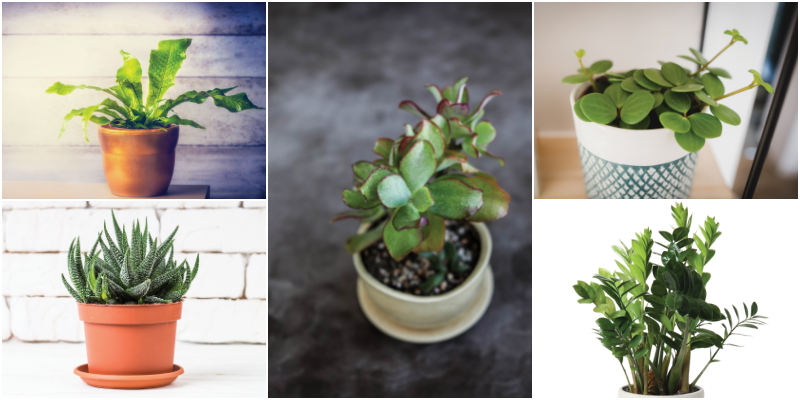Tracy Hankwitz opened Bella Botanica, a plant and gift shop, in an old church four miles north of Lake Geneva in April 2021. Armed with a background in horticulture and a desire to highlight local makers and one-of-a-kind products, she is blazing her own trail in the home plant business.
The Gateway Technical College horticulture instructor worked at a local garden center for 18 years before opening her own store. The timing couldn’t have been better for her shop’s opening. With people continuing to work remotely and home more often, houseplants have really hit their stride in the last few years. Studies show houseplants encourage productivity — great news for your home office. Houseplants also release oxygen and even remove toxins from the air.
“Houseplants create a Zen atmosphere,” Hankwitz says. “Some of us have a need to nurture. They’re our plant babies. Some people even name their plants.”
Her advice to people wanting to start or expand their houseplant collection is to first think about where you want to put the plant and how much light that space receives throughout the day. Then be realistic about how often you remember to water, and find the right plant to fit those conditions. A plant shop or nursery should be able to help you find plants that are ideal for your conditions.
“My favorite [plants] are the easiest to take care of, and [are] low-light plants,” says Hankwitz. “Low light is an issue that many people have [at home] — they don’t have a sunny window.”
Hankwitz’s current preferred houseplant is the philodendron micans — a species that has velvety, enticing leaves. She also loves spins on traditional houseplants like curly or cascading jade, and ones that grow well in lower light, like Haworthia.
“People are really embracing the snake plant — there are a ton of different varieties of that, which grow well in low- light conditions,” says Hankwitz. “I have trouble with ferns because they need a lot of moisture — [but] I like the crocodile fern because it has broad leaves that look like crocodile skin, and it doesn’t need as much water.”
HOUSEPLANT TLC
When it comes to caring for your houseplants, Hankwitz says don’t be afraid to transplant them to a new pot to keep them fresh — spring is best. Make sure all pots have good drainage and each time you water, the water should run through the bottom of the pot. When you water, give your plants a quarter turn. Some will grow towards the sunlight so this step is vital to ensure they don’t lean. Hankwitz recommends fertilizing your houseplants once or twice a month from March to October, which is typically their active growing season. (Hankwitz says all plants have slower growth and a resting period in the fall and winter). Espoma is her favorite brand of fertilizer and potting mix.
“With potting mix, you get what you pay for,” says Hankwitz. “If you’re going to buy the cheapest, you’ll get the poorest quality.”
Houseplants don’t always need to be inside — if you have filtered outdoor light, your plants may enjoy being outside in the summer and being nourished by rainwater. (You can also use water from a rain barrel or even an aquarium to water your houseplants.)
Rain or shine, don’t get discouraged if a plant doesn’t end up working for your space.
“People shouldn’t feel bad if they kill a houseplant — it happens,” says Hankwitz. “What can you learn from it? Most houseplants are inexpensive, so if they bring you joy for a little while, it’s not that expensive to go out and buy a new one.”
By Hannah Wente
Five Easy-to-Care-for Houseplants

Pictured, clockwise starting at top left:
- Crocodile fern
- Curly jade
- Peperomia “Hope”
- Zanzibar gem, or ZZ plant
- Haworthia